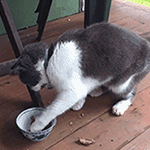C# interclass communication
Go to solution
Solved by Franck,
24 minutes ago, stefanmz said:Sure yeah I don't know about reflection anyway so I guess I won't use it. The second option I might try but I mean it's an app just for fun and exercising classes so no big deal,thanks anyway. I think I am gonna try the second option.
second option is what I would recommend you to do. It will teach you Static and/or Singleton. It is also closer to what you would do in a real world application based on the current subject you choose for that exercise.



















Create an account or sign in to comment
You need to be a member in order to leave a comment
Create an account
Sign up for a new account in our community. It's easy!
Register a new accountSign in
Already have an account? Sign in here.
Sign In Now